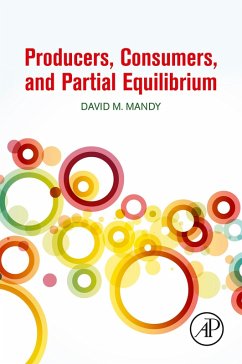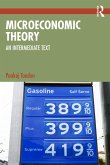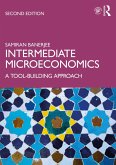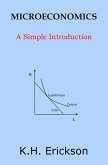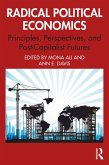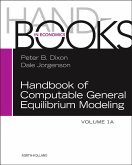Dieser Download kann aus rechtlichen Gründen nur mit Rechnungsadresse in A, B, BG, CY, CZ, D, DK, EW, E, FIN, F, GR, HR, H, IRL, I, LT, L, LR, M, NL, PL, P, R, S, SLO, SK ausgeliefert werden.
"I wish I had David Mandy's book, Producers, Consumers, and Partial Equilibrium, during my many years of teaching the core theories of consumer and producer choice to graduate students. Working through the elegant and rigorous treatment plus the many exercises in Mandy's book will give the student a very solid foundation of understanding of this core material." --William A. Brock, University of Wisconsin, Madison and University of Missouri, Columbia
"This text is much more self-contained than many other modern treatment of core microeconomic theory. First-year graduate students will find this a great resource tying optimization and economics in a clear and logical development." --Jonathan Hamilton, University of Florida
"Producers, Consumers and Partial Equilibrium provides a rigorous, in depth, and self-contained treatment of the mathematics and fundamental results from classical microeconomic theory of consumer and producer behavior in a partial equilibrium context. Mandy's clear and logical presentation, together with the numerous exercises at the end of each chapter, make this book indispensable reading for doctoral students in Economics and related disciplines." --Carlos Martins-Filho, University of Colorado, Boulder
"Mandy takes students through the foundations of neoclassical economics. He shows how basic tools derived from optimization theory, namely, contemporary duality techniques, unify arguments whether they concern producer or consumer decisions. In all cases the ultimate objective is to derive comparative statics results in a systematic manner. Mandy accomplishes this task so well that his book could by profitably used by students learning this material on their own." --Robert Becker, Indiana University
"David Mandy has written an elegant book that deeply investigates both the necessary mathematical tools to study neoclassical models and the application of those tools to many economic environments. It will be an excellent text for both the "math camp" and first semester Ph.D. courses in economics." --Gary Biglaiser, University of North Carolina

